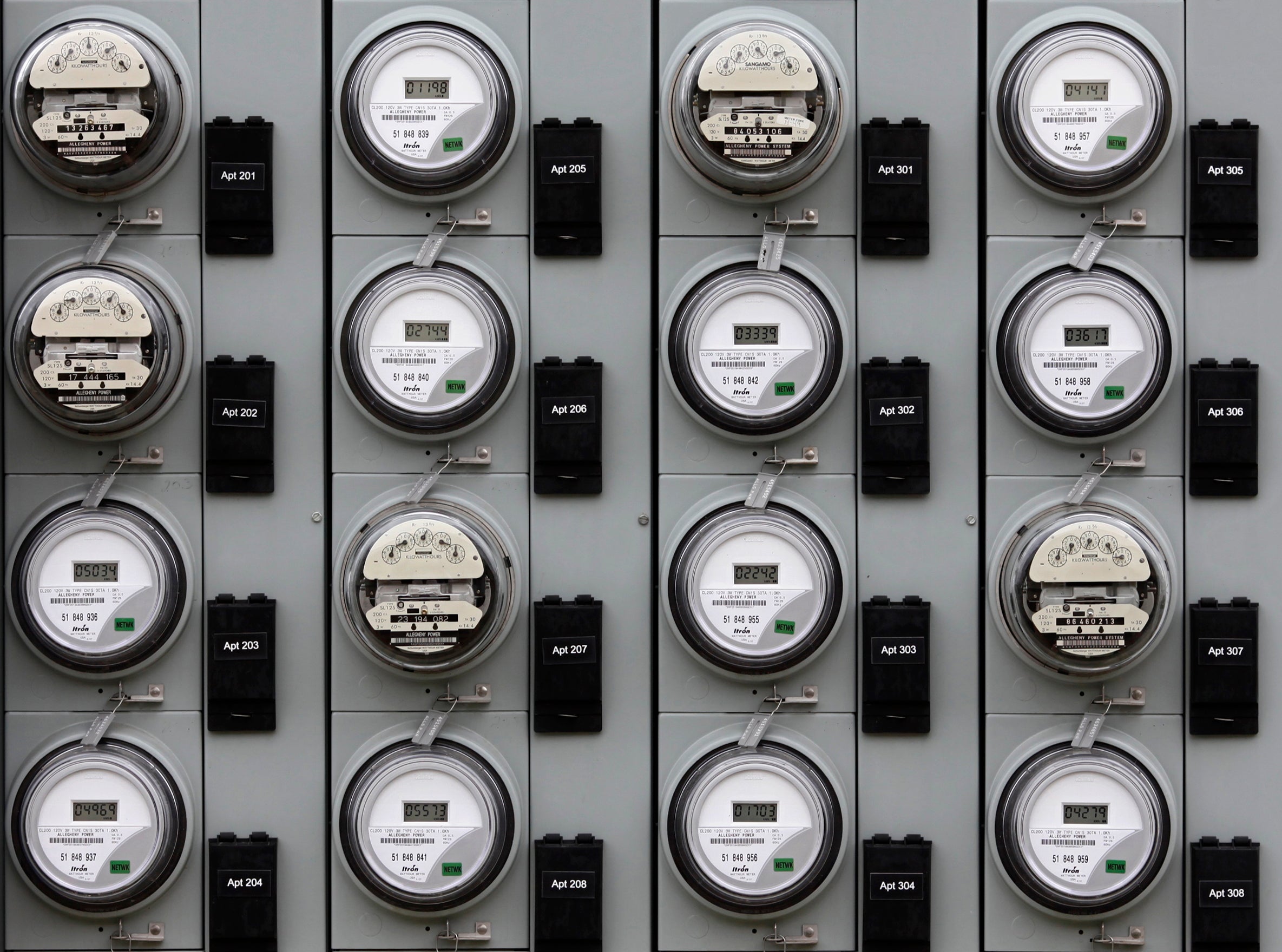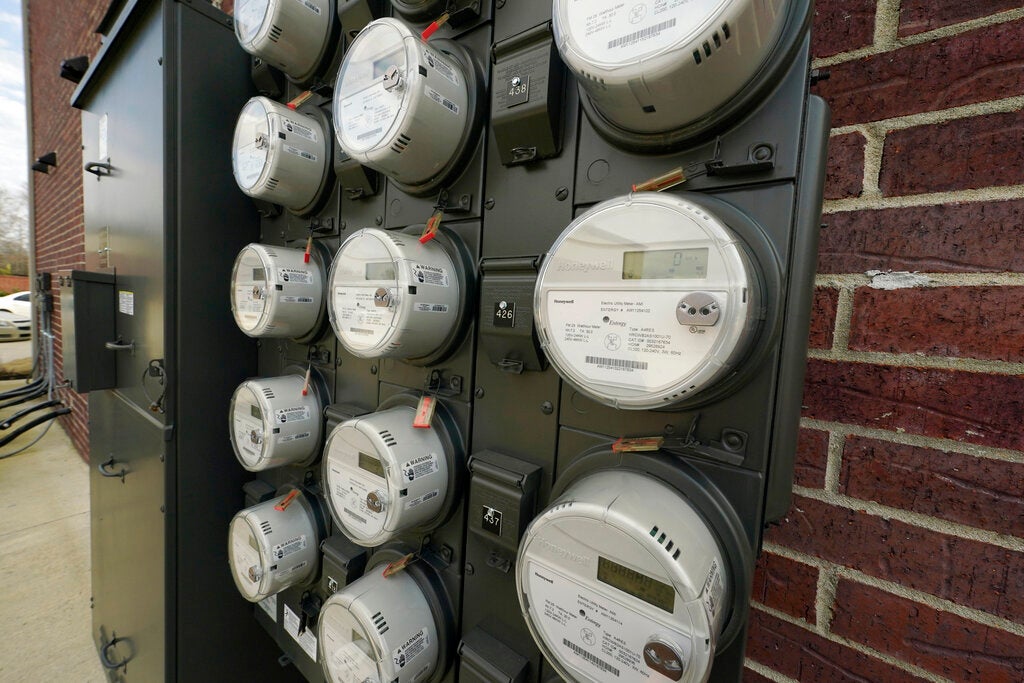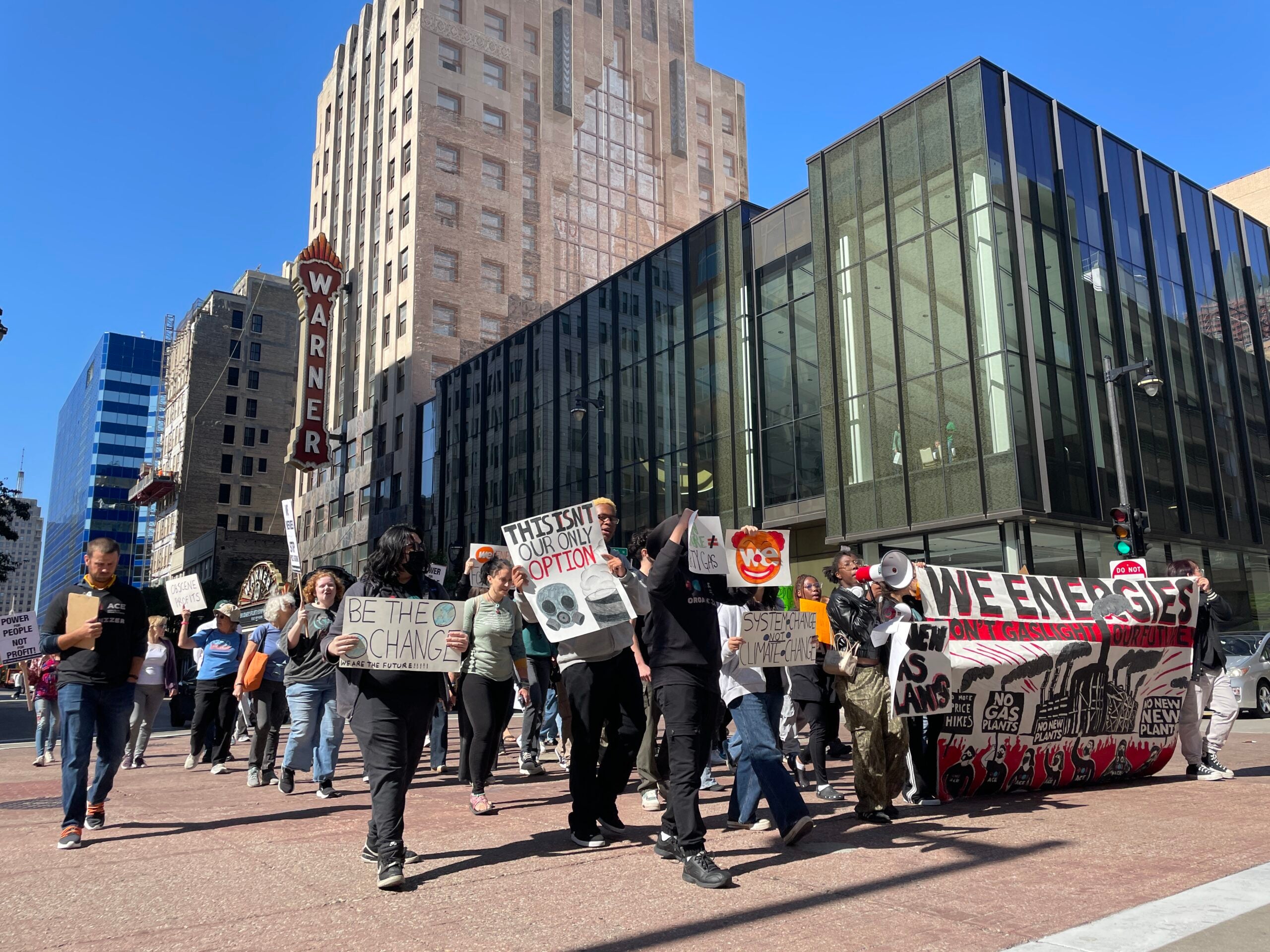The Public Service Commission of Wisconsin is again considering changing rates for two of the state’s biggest utilities — in one case looking to lower rates — after it approved hikes last year.
State regulators recently held public hearings in rate cases for We Energies and Wisconsin Public Service, both owned by WEC Energy Group.
They come after the Public Service Commission, or PSC, last year approved electric rate increases of 8.8 percent for We Energies and 9 percent for Wisconsin Public Service, or WPS.
Stay informed on the latest news
Sign up for WPR’s email newsletter.
This spring, We Energies asked to increase electric rates by 2.5 percent in 2024, and WPS asked to decrease electric rates by 2.3 percent. PSC audits recommended a 2.28 percent increase for We Energies electric rates in Wisconsin, and a 3.15 percent decrease for WPS.
Under the company’s proposal, WEC Energy Group spokesperson Brendan Conway said average monthly electric bills for We Energies customers would increase by about $4 and decrease for WPS customers by about $2.
For natural gas, We Energies is proposing different increases for its two gas utilities, Wisconsin Electric Gas Operations and Wisconsin Gas. Wisconsin Electric Gas asked for a 4.5 percent rate increase, while the PSC audit recommended a 4.04 percent increase. Wisconsin Gas asked for a 2.9 percent increase, but the audit recommended 2.52 percent. WPS did not request changing its natural gas rates.
Conway said this year’s rate cases stem from last year’s actions, when the PSC authorized WEC to seek recovery from investments going into service in 2023 and 2024, as well as operations and maintenance costs at retiring coal plants. A few of the projects factored in include the second phase of the Badger Hollow Solar Park and the Paris Solar-Battery Park.
“This is very limited to just a few of these capital projects, (and) it allows everybody to have a better sense of the cost,” he said. “Costs have been such a moving target over the past few years because of supply chain issues, materials costs and those types of things.”
Customers weigh in on utility proposals
While no one signed up to speak at public hearings on WPS’ proposal, We Energies’ hearings saw a lot of participation. That’s because We Energies’ base rate increase last year led to a nearly 11 percent increase for residential customers.
One of the customers who’s been affected by the hike is Karen Peterson, a retiree living in Milwaukee’s Riverwest neighborhood. She said she lives on a fixed-income and rents an apartment, limiting her ability to reduce her electric bill.
“It really does affect me personally if these prices go up, and not only this year, but next year or the year after,” Peterson said. “I can’t go without lights. I can’t go without heat. So that money is going to have to come out of somewhere else and eventually could very well be coming out of the food budget.”
Toni Clark, a teacher for Milwaukee Public Schools, also testified against We Energies’ proposal. She said she regularly sees parents who have to choose between paying their energy bills and paying rent.
Clark also said further rate increases will be especially difficult for Milwaukee residents who also have to pay additional city and county sales tax for goods and services.
“I see it every day — day after day — with my students and their parents. (There) are so many others that just cannot afford this rate increase,” she said.
Geneva Jones, who lives in Milwaukee’s Lindsay Heights neighborhood, also opposed the rate increase. She said the PSC made a “reckless decision” when it approved residential rate increases for We Energies customers last year.
“These people are getting away like a bandit in the night, and they don’t even need a gun or mask — please stop this and help us,” Jones said.
While most people who testified were against the proposed rate increase, some of the groups that have helped We Energies with renewable projects testified in support.
Steve Kwaterski, political and communications director for the Wisconsin Laborers District Council, said the utility’s investments have bolstered the state’s workforce. From April 2022 to June 2023, he said 241 members of the union worked on the Paris solar project.
“This has generated over 146,000 working hours for members of our union,” he said. “This project is also contributing to our union’s equity goals where over half of the workforce is either African American or Latino.”
Utility, watchdog differ on coal plant position
The Citizens Utility Board of Wisconsin, or CUB, is asking the PSC to prevent customers from paying for cost overruns on clean energy projects, ensure storm hardening efforts are cost-effective and to prevent utilities from profiting on retired coal plants, according to Tom Content, the organization’s executive director.
Last year, We Energies and WPS agreed to a settlement with CUB and other groups that would have allowed We Energies to refinance $100 million that’s yet to be paid off from investments in pollution controls at the South Oak Creek coal plant in Milwaukee County. That process is called “securitization.”
The plant is set to be retired in 2025. The PSC rejected the securitization portion of the settlement, but regulators said at the time they wanted to revisit the matter with We Energies this year.
Content said the settlement would have resulted in cost savings for customers. He said CUB wants the PSC to allow We Energies to refinance the pollution control debt, and to take other steps to limit the company from profiting off Oak Creek when the plant retires.
“Even if they can’t mandate securitization, they can suggest that the amount that was going to be refinanced through securitization last year in the settlement wasn’t enough,” Content said. “The PSC has the ability and the latitude to make a decision that could save customers money even without securitization.”
In a filing with the PSC, We Energies said CUB is proposing “alternative ratemaking approaches” for recovering costs from Oak Creek before the plant is retired, arguing those proposals “are outside the scope” of this “limited” rate case.
“There really is no settlement portion of this year’s rate filings, so that’s just not something that’s going to happen after it was rejected last year,” Conway said. “That said, we continue to have those discussions, whether it’s with CUB, the Commission or other stakeholders.”
The PSC is expected to make a decision on the rate cases in the coming months.
Editor’s note: The Citizens Utility Board of Wisconsin is an underwriter of Wisconsin Public Radio.
Wisconsin Public Radio, © Copyright 2025, Board of Regents of the University of Wisconsin System and Wisconsin Educational Communications Board.


